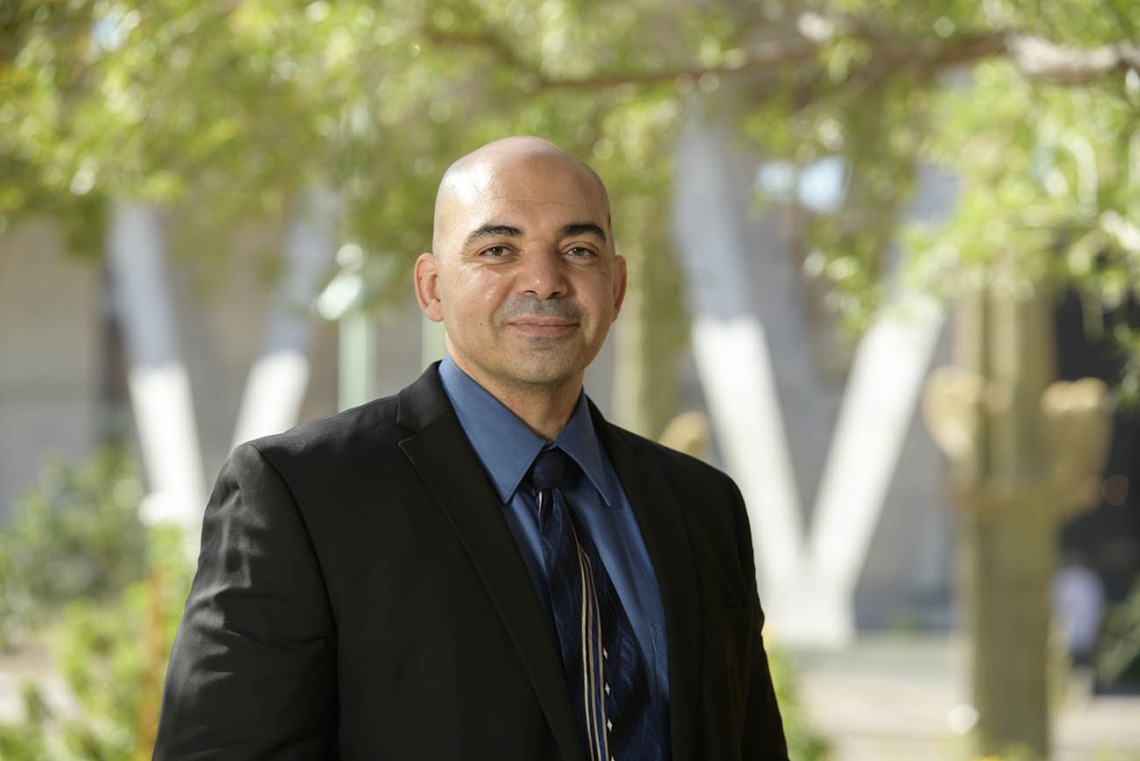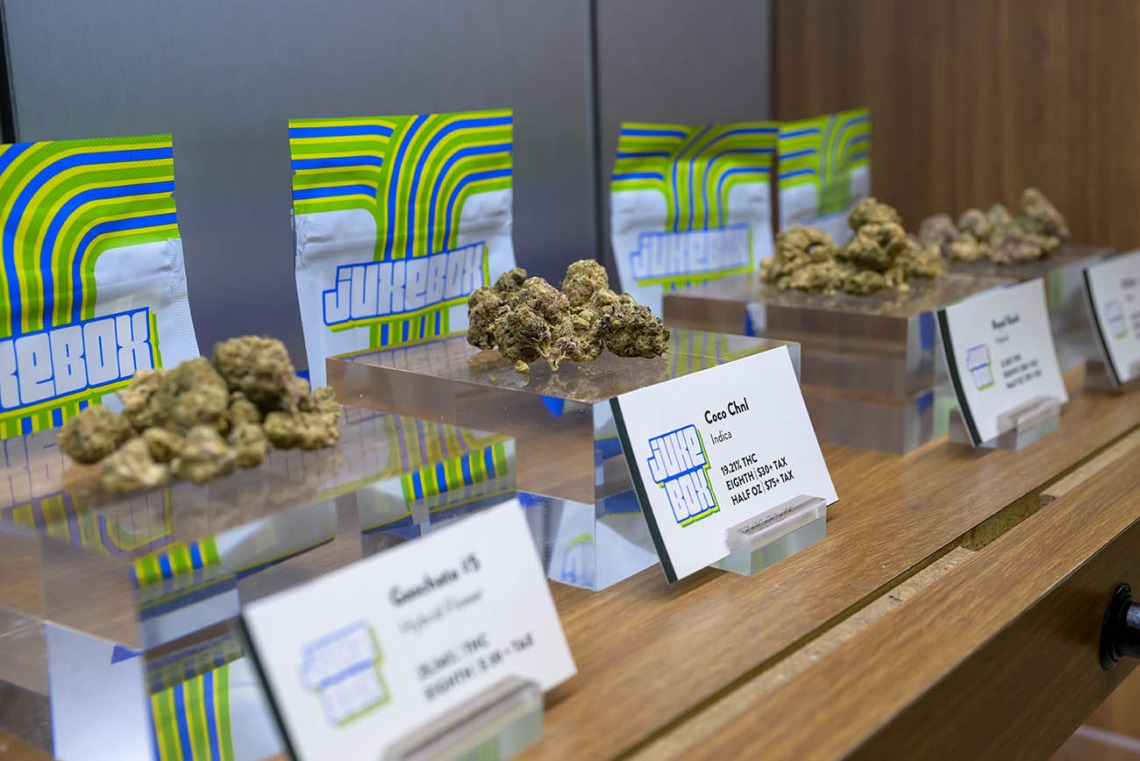Should I talk to my doctor about cannabis?
Pain management physician Mohab Ibrahim, MD, PhD, answers some important questions about the doctor-patient relationship when it comes to talking about cannabis.

Cannabis is approved in many states for medicinal or recreational use, though it remains illegal at the federal level. At the same time, studies have shown that cannabis may be beneficial for some conditions, including chronic pain caused by nerve damage. As a result, more people are turning to cannabis to manage their pain.
Still, the use of cannabis, also known as marijuana, often carries a stigma that leaves many people uncomfortable discussing it with their doctors. We asked pain management physician Mohab Ibrahim, MD, PhD, medical director of the Comprehensive Center for Pain & Addiction at the University of Arizona Health Sciences, to shed some light on what you need to know when it comes to talking to your doctors about cannabis.
If I use cannabis, do I need to tell my doctor?
Absolutely, because cannabis is a medication, and some medications can interfere or interact with other medications. Cannabis can affect the nervous system. It can make some medications more sedating. It can inhibit some medications and interfere with anesthesia, depending on how much cannabis and how long the person has been using cannabis. In the operating room, for example, your anesthesiologist absolutely needs to know whether you use cannabis – is it occasional? Is it habitual use and you use it every day? And if so, how much? Because that could change the anesthetic plan, including how much medication or the type of medication you are given to provide you with safer anesthetic. Whether you’re in a cardiologist’s office, seeing your pain management physician or whatever the situation may be, cannabis can interfere with some of the body’s physiological functions and with some of the medications they prescribe. Your physician needs to know what you are on.
I see several doctors. Do I need to tell all of them or just one, such as my primary care physician?
It’s safer to tell all of them. Certainly a primary care provider needs to know about it because the primary care handles almost everything. From the research I’ve done and done by others, I can tell you cannabis has cardiovascular effects, so the cardiologist needs to know about it. Cannabis can have psychiatric manifestations, so a psychiatrist needs to know about it. It also has effects on the lungs, so a pulmonologist or critical care physician needs to know about it. It’s always safer to tell whoever the specialist is that a patient is using cannabis, and it’s up to the specialist to decide whether cannabis use is relevant or not.

Mohab Ibrahim, MD, PhD, shares valuable insights on the doctor-patient relationship and cannabis use, emphasizing the significance of transparent communication.
Will my doctor ask me why I take cannabis?
Different people may use different medications for different reasons. Typically, physicians tend to probe and find out what’s going on. In today’s reality, with limited time between the patient and the physician, the physician may not have the time to probe into all the problems unless the patient identifies them or wants to discuss them. If someone is on a medication, I tend not to assume what that the medication is for because certain medications can be used for many different indications. I will ask someone, ‘Why are you on this muscle relaxer?’ Some people take a muscle relaxer for muscle pain, but some people take it because it makes them sleepy. Some people take it because it takes their anxiety away. So that gives me an idea of how I can help. If it is a sleeping issue, I can think of better ways to manage their sleep disturbances. If it is anxiety, there are better ways, not necessarily that medication. So it is good to tell your physician why you are taking cannabis, or any other medication, so they have the information they need to address the problem.
Because cannabis is federally illegal, does the doctor have a duty to report cannabis use by a patient to an authority?
It depends on the bylaws of the institution and the state. The policies I follow when I work at Banner – University Medicine are different than the policies doctors must follow at a government-run VA hospital, for example. There is a clause that protects physician-patient confidentiality unless subpoenaed by a judge or by a court order. An exception is a situation where a patient is planning on harming him/herself or others. A lawyer might be able to better answer this question, but regardless, safety should always come first. It would be unfortunate if a physician prescribed something or did a procedure that ended up hurting the patient because they didn’t know that the patient withheld some information from them. Safety comes first.
Is my doctor going to look down on me or treat me differently if I tell them I use cannabis?
Generally speaking, most physicians withhold judgment. We are not here to judge someone’s character or behavior. If someone comes to me with a certain issue or something that’s bothering them, I try to address it. I try to put myself in the patient’s shoes and see why they went down that route. For example, if we’re talking about pain, has the pain not been addressed appropriately? Or is the method used to address the pain so expensive that they cannot afford it or so burdensome that they cannot devote the time to it? At the end of the day, most places have more than one physician in a given specialty. If a patient feels that they are not connected with their physician or that the physician is being judgmental, maybe it’s time to look for a different physician – someone the patient can connect with. You don’t have to be best friends with your doctor, but there should at least be a level of mutual understanding and a level of appreciation. And typically, that produces a better clinical outcome.

Cannabis is sold for recreational use in many states, but it should still be thought of as a medication. Ibrahim underscores the importance of understanding the complexities of cannabis use, including potential risks and medication interactions.
What about CBD? I can buy that anywhere and it’s a natural product, so isn’t it basically safe?
Just because something is available over the counter doesn't mean it's safe. I use Tums, the antacid, as an example. Anyone can get it, it’s fruit flavored and tastes almost like candy. It is wonderful. But guess what? If you take enough of those things, they can actually kill you. Hemlock is natural; arsenic is natural. A lot of things are natural, but they can be deadly. The difference between a medicine and a poison can be the dose, how much you take. It’s the same thing with CBD – just because it’s available at convenience stores doesn't mean that it is 100% safe. So it’s good to discuss CBD with your physician, because it can also interact with other medications.
How should I start the conversation with my doctors?
The best way is to basically say, I’m on cannabis. There is no standard way to talk about it, just however is comfortable to you. But whatever method you decide on, I think it should be discussed with your primary care physician. It can be something as simple as, ‘Oh, by the way Doc, in addition to ibuprofen and Tylenol, I’m also taking medical marijuana,’ or ‘I tried CBD.’ There is no standard way to address it, but it should be discussed in the least stressful manner for you. Your doctor is your ally. They are there to help. They are not there to put you in a corner or to fish for mistakes. They want to help, and the amount of help they can provide is dependent on the information you give them. It’s as simple as that.
About the Author
Mohab Ibrahim, MD, PhD, is the medical director of the University of Arizona Health Sciences Comprehensive Center for Pain & Addiction and a professor of anesthesiology at the College of Medicine – Tucson. He is a board-certified anesthesiologist and a pain management specialist. Ibrahim began his career in chronic pain research and treatment at the UArizona College of Medicine – Tucson’s Department of Anesthesiology. He obtained his master's degree and doctorate in the field of pharmacology and toxicology, focusing on neuropathic and chronic pain. Ibrahim completed his general surgery internship at the University of Arizona Medical Center. He joined the Brigham and Women’s Hospital/Harvard Medical College in Boston for a residency in anesthesiology, critical care and pain medicine, and after his residency he was a clinical pain fellow at Massachusetts General Hospital/Harvard Medical College. He joined the faculty at the University of Arizona College of Medicine – Tucson in 2014.

